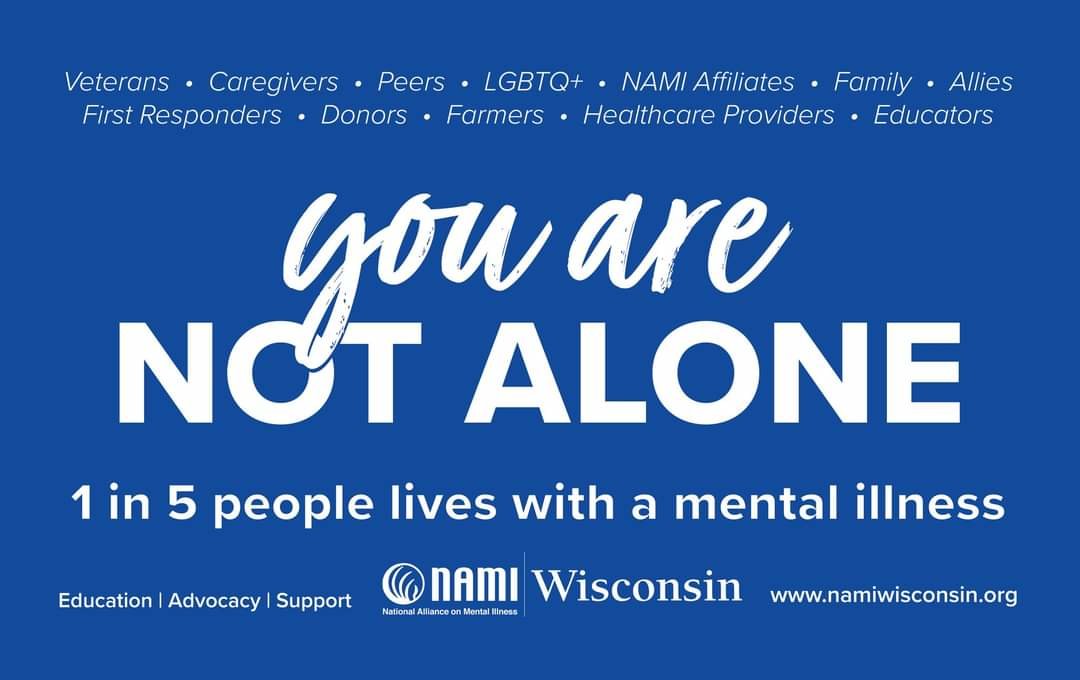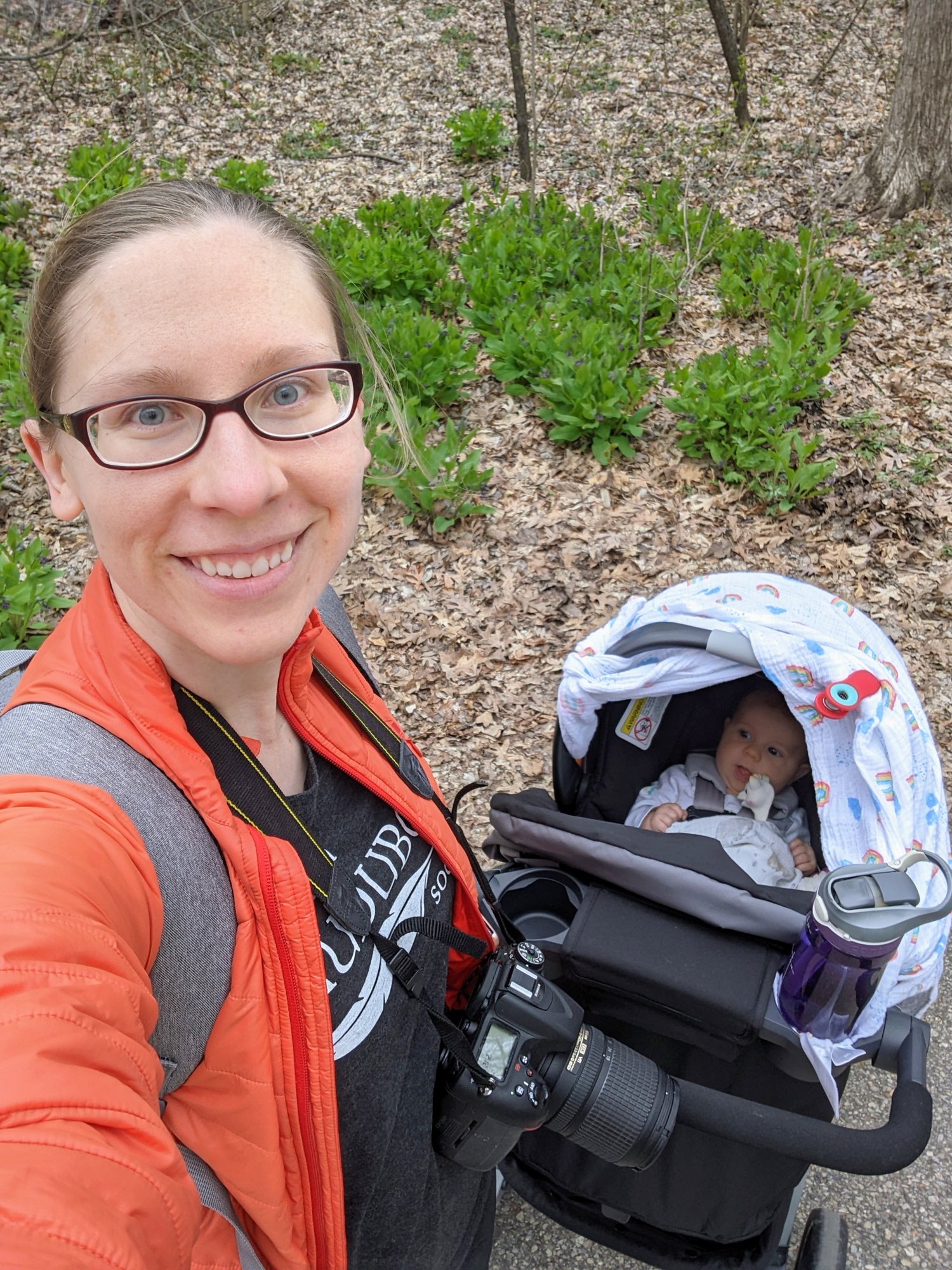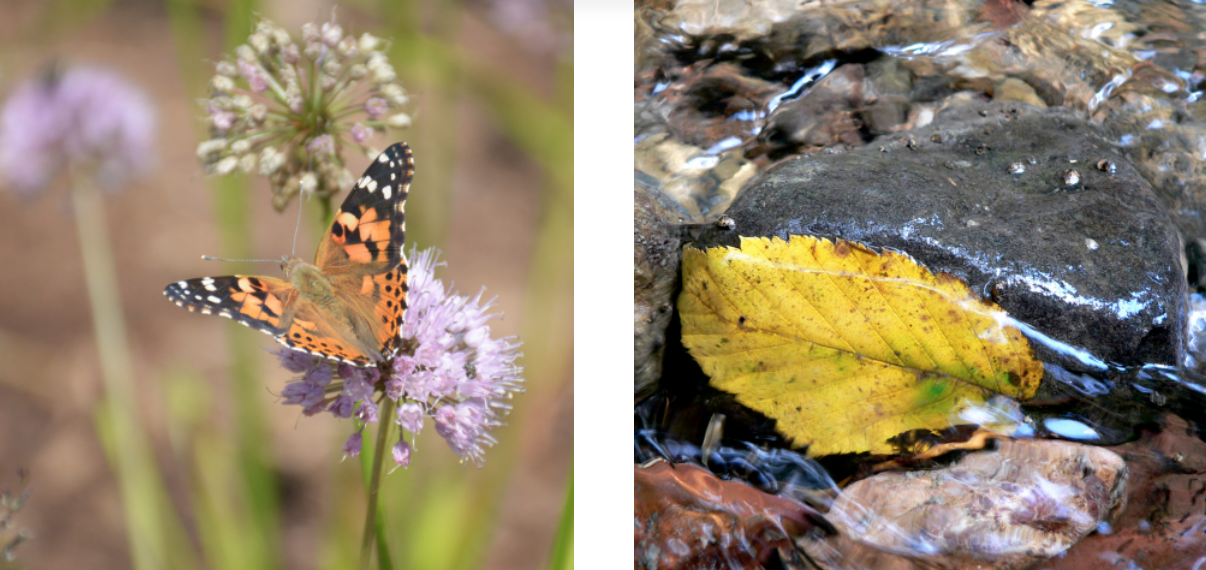Together for Mental Health
Posted by Samantha Haas on Friday, May 27th, 2022 at 11:15am.
While we all know it's important to take care of our physical health, sometimes we forget that our mental health deserves attention, too. They both contribute to our overall well-being, but we’re often more likely to schedule a preventative doctor or dentist visit than make an appointment with a counselor or therapist.
The last few years have been particularly challenging for people because of the COVID-19 pandemic, which the World Health Organization attributes to a 25% increase in prevalence of anxiety and depression worldwide, highlighting the need for more mental health services.

National Alliance on Mental Illness, America's largest grassroots mental health organization, seeks to fight stigma, provide support, educate the public, and advocate for policies that support people with mental illness and their families. This includes offering a free HelpLine (nami.org/help) and resources for online support (helplinefaqs.nami.org/article/63-online-support). During Mental Health Awareness Month in May, NAMI is amplifying the message, “Together for mental health," by encouraging people with lived experience to share their stories. This is mine.
 My first introduction to talking with a mental health professional was over a decade ago in college through its free counseling center. A friend of mine had expressed thoughts about self-harm, and I was so concerned about their safety that I couldn't sleep or focus on schoolwork until I knew they got the help they needed. A few years later I decided to try therapy again when mounting stress was negatively impacting my personal well-being, my job at the time, and my relationships with others. The people-pleasing and perfectionist tendencies that seemed to serve me well through school had taken their toll on my physical, emotional, and mental health, and that path was unsustainable. After finding the right counselor, changing careers, and surrounding myself with people who understood, I was able to see those traits for what they really were – manifestations of anxiety.
My first introduction to talking with a mental health professional was over a decade ago in college through its free counseling center. A friend of mine had expressed thoughts about self-harm, and I was so concerned about their safety that I couldn't sleep or focus on schoolwork until I knew they got the help they needed. A few years later I decided to try therapy again when mounting stress was negatively impacting my personal well-being, my job at the time, and my relationships with others. The people-pleasing and perfectionist tendencies that seemed to serve me well through school had taken their toll on my physical, emotional, and mental health, and that path was unsustainable. After finding the right counselor, changing careers, and surrounding myself with people who understood, I was able to see those traits for what they really were – manifestations of anxiety.
While I didn't receive an anxiety diagnosis until well into adulthood, looking back I realized that my excessive worry is something that's been with me ever since I was a kid. When a family member would call out of the blue, my heart would race and I'd think, "Who died?" (when really they just wanted to say hello). If someone was running late, I'd worry they got in an accident (when really they just stopped to fill up with gas or got stuck in traffic). If a friend didn't respond quickly to a message, I wondered if I'd done something to upset them (when really they just got busy and forgot). I assumed everyone felt how I did in these situations. Maybe sometimes, but not with the frequency and intensity that I and others with anxiety often do.
Through counseling, I started to get a handle on interrupting this thought process and not immediately picturing worst-case scenarios. Then the unimaginable happened: my friend and former coworker died in a car accident in 2019. She was only 25. The grief I felt seemed unbearable. Once again my sleep, focus, and mood suffered. I was able to find solace in attending a local grief support group offered by Agrace. Although everyone's experience with loss is different, being in that space made me feel heard and held so that I could start to heal.
Since then, the pandemic and what seems like an endless cycle of negativity and tragedy in the news have added extra layers of overwhelm. Five months ago we welcomed our first child into the world, and so far the journey of parenthood has been wonderfully exhausting. The future makes me feel both hopeful and anxious – a complex mix of emotions likely fueled by sleep deprivation, seasonal depression, and postpartum hormones.
Thankfully, I know there are people I can reach out to who will listen without judgment and resources I can tap into to help me navigate these feelings. Everyone's support network and path to healing looks different. For me, that means regularly talking to a counselor and people I trust, getting outside for a walk or bike ride in the fresh air and sunshine, practicing yoga and meditation, keeping a gratitude journal, and immersing myself in hobbies that bring me joy, such as nature photography and children's picture book writing.

NAMI Wisconsin said it best: "The road to recovery is unique for everyone. Recovery can include a variety of approaches including medication, therapy, coping skills, support groups, and more. There is no 'one size fits all' method and it takes time and patience to find the right combination for each person."
I hope that you find what works best for your mental health and that you remember there's no shame in seeking help. You are not alone, and the world is a better place with you in it.
What helps your mental health?
Alan Feder: "For me there is an absolute connection between my physical and mental health. If I haven't moved my body in a couple days it shows up in other parts of my life. I'm a very active person, so for me I usually need 45-60 minutes of a cardio activity, preferably outside. Vitamin D from the sun is also essential. For most of the year, running is my go to activity. In the summer I add road and mountain biking to the mix as well as hiking. And in the winters it's alpine and cross-country skiing along with some indoor bike training. Spending time with friends and family keeps me grounded and I consider it essential to my mental health. We are social creatures, and spending too much time isolated from other humans can lead to depression or really just "feeling down." The pandemic is having lasting effects on many people in that way. Other activities or pursuits that help me are journaling, meditation, reading, and cooking healthy meals. I've also spent time seeing a therapist and feel that kind of professional counseling is invaluable, especially during a more difficult or stressful time in my life. Historically, mental health awareness was either shunned, not talked about, or simply unknown. It's great to see people talking about it out in the open and realizing how impactful those conversations can be and the ripple effects it creates."
Ann Raschein: "When I am feeling overwhelmed and know that I need to prioritize my mental health, I either connect with a friend or family member for a conversation, a cup of coffee or a walk. Or I like to do something creative. Both outlets give me perspective and an opportunity to clear my thoughts."
Chris Venden: "Morning walks with my dogs have been a big part of my routine for many years. I look forward to the walk/play time as it's their favorite time of the day and their joy rubs off on me. During the warmer months, I try to enjoy a cup of coffee sitting outside (with the dogs), listening to birds, cranes, wildlife, and/or watching the sunrise/sunset as often as possible, which helps me reflect and appreciate what's here and now."
Dan Miller: "I'm an early riser, and I've learned I'm at my best when I start my mornings off with quiet reflection and exercise. Taking breaks during the day, like going on a short walk or meeting a friend or a colleague for coffee, is also good for my spirits. Meeting regularly with a counselor and joining a generous faith community have turned out to be two of the best decisions of my life :)."
Tracy Kapela: "I tend to lean towards solitary activities when I feel stressed, so I really enjoy physical releases like weight lifting, walking/jogging or shooting some hoops. Setting up my hammock in the woods, getting lost in a new show, taking a drive into the country, and snuggling the family cats are some of my other go-to activities that help me reset."
Looking for a little more “me time” in your life?
You might want to try the Insight Timer meditation app. It’s free, and it offers thousands of guided meditations, guided yoga sessions, and online courses, too. The meditations are arranged by topic, and can help you focus on improving sleep, reducing anxiety and stress, improving focus and concentration, nurturing relationships, practicing loving-kindness, and more. This is a great app for beginners as well as people who are more experienced with meditation.
